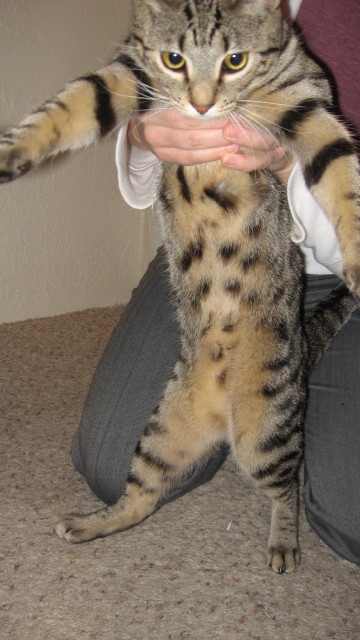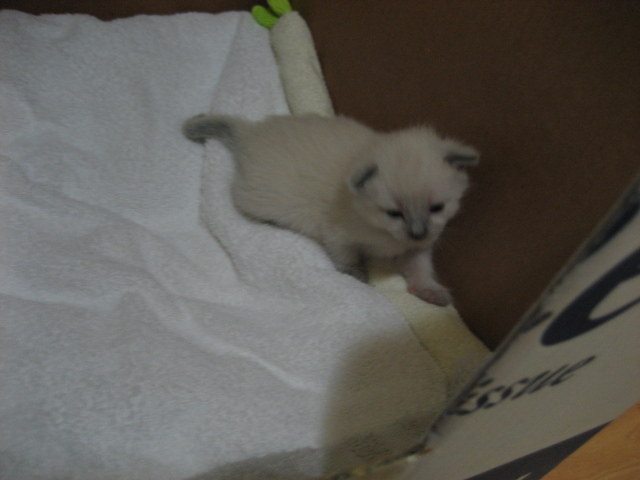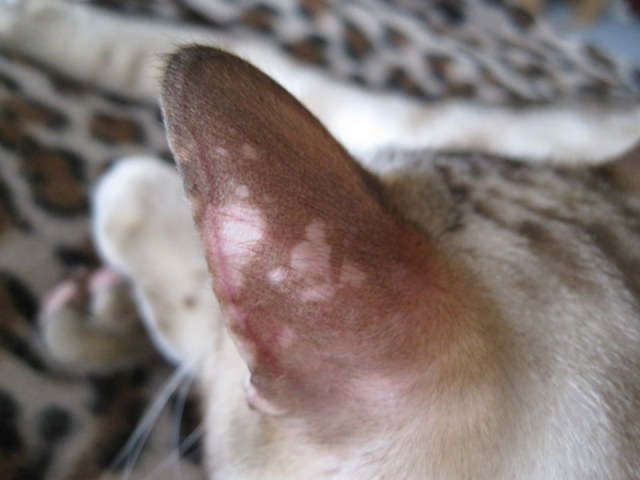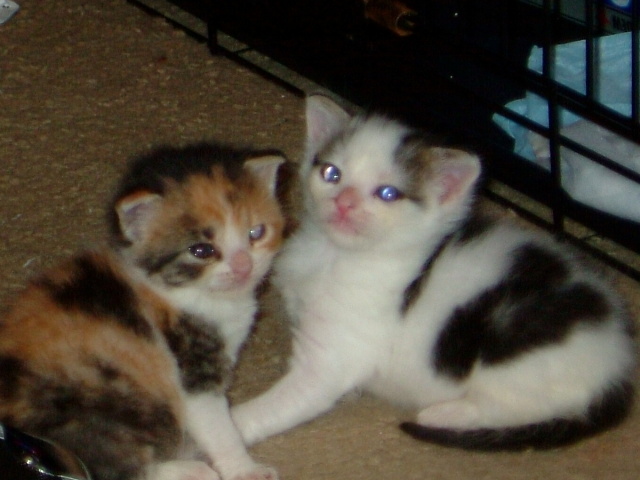QuestionHello,
I have neutered male cat 8 years old that is recovering from tooth extraction due to otodoclasitic lesions The surgery took place last week, he is still not eating on his own, and per the vets suggestion I am force feeding him. I am trying to get him to take in more on his own, but I am wondering what type of food would entice him to eat on his own. Do you have any suggestions of food that is tasty?
AnswerJeanne,
Since this kitty has recently had a tooth extracted I do have a couple of questions for you so that I have a clearer picture of what's happening with your little guy. The questions are as follows:
- Is this kitty on antibiotics?
Antibiotics are a wonderful invention when it comes to killing off bad bacteria, however they don't stop there, these medications kill off the beneficial bacteria normally found in your kitty's digestive tract which can leave them feeling nauseated. Some cats will even vomit or have diarrea. The easiest way to reverse this unpleasant side effect is to give your kitty a dose of plain, unsweetened yogurt (organic if possible) a couple of times a day. I'd say that a tablespoon of yogurt at least twice daily throughout the rest of the course of antibiotics and a couple of days afterwards should help to dramatically improve how your little guy is feeling.
- Is your little guy receiving any kind of pain relief?
If your cat isn't receiving any pain medication it's possible that he's refusing to eat simply because he's in pain which would make him feel pretty rotten. As I'm sure you can imagine he wouldn't want to eat with mouth pain.
There are a few foods that I can recommend and I'd also suggest that you consider adding a homeopathic remedy called Bach's Rescue Remedy which is a blend of five flower remedies that calm and reassure to his treatment. The least invasive/offensive way to administer this remedy to a cat is to rub it into the relatively fur free areas of skin on and around their ears - the flower remedies are preserved in a grape alcohol solution so it's very important that you don't get any of the remedy into his ears because that would sting. I'd say that a dose of around 5-7 drops of Rescue Remedy at each feeding (I'm guessing he's eating every 6 hours or so in order to get the calories he needs into his system in reasonable sized meals spaced evenly throughout the day?) should help to bring him to a calmer, more balanced state. Sometimes cats don't respond very well to the treatment that they receive in the vet's office because it's so very foreign to them when compared to how they're treated at home. As pet parents we don't typically restrain our cats for unpleasant procedures, in a vet hospital they're generally restrained by a technician or vet assistant while the vet or another technician administers medications, draws blood or does something that's equally unpleasant in the eyes of the cat.
As for tempting foods from a cat's perspective there are a few that are old standbys - you don't really want them eating a diet entirely made up of any single food, but at this point it's important to get your little guy eating again, you can make changes to what he's eating gradually at a later date once he's consistently eating enough to maintain his needs for energy. Anytime a cat stops eating voluntarily it's important to try and make food as appealing as possible for him/her. One way to accomplish this is to gently heat the food to body temperature, the best way to do this without sacrificing too many nutrients is to place a small serving (a tablespoon or so will do to start with) of the food you're offering into a small ziploc bag, close the bag tightly ensuring that the bag won't leak then place the bag with the food into hot tap water. Cats really aren't designed to eat room temperature or cold food, they're predators, not scavengers meaning that they kill their own prey and eat it immediately where a dog will find roadkill and make a meal of it even if it's been sitting on the side of the road rotting for a week. You could try tuna, salmon or sardines packed in water, many cats enjoy some of these foods, just be aware that you don't want to put down too much food at one time because it can be overwhelming for the cat. Most cats will immediately show an interest in tuna or other fish, but if your kitty doesn't or you would prefer to avoid giving him fish then you can offer him meat & broth baby food (read the ingredient list to be sure that the food doesn't contain onions, garlic or spices since they're not good for cats). Since your kitty is a senior kitty you could also check out your local Petsmart, they have a product called CatSure which is essentially the feline version of ensure for older cats. Generally when I'm dealing with an older cat that won't eat voluntarily I actually mix Catsure with baby food to add nutrients and taste. CatSure is only good in the fridge for a couple of days after it's been opened, in order to minimize waste (this stuff is a bit pricey, so you'll want to waste as little as possible) I will freeze it in ice cube trays covered with saran wrap to avoid freezer burn. Once the CatSure is frozen I put it into a ziploc bag, stored in this way the Catsure is good for 3-6 months. You could try canned cat foods such as Wellness which is a food made entirely of human grade ingredients - an added bonus: the food actually smells like what the labels say it is. Another option that you could try that does go over well with some kitties is a prescription food that's labelled as feline/canine recovery formula (Medi-cal), ask your vet about picking up a few cans of this. There are cats who won't go for this so be sure that you don't pick too many cans up at once since some veterinary hospitals have a no return policy on food even if it's unopened. Ideally your little guy should start eating on his own once his pain is under control and he's got something yummy to try. If your little guy doesn't start eating on his own after you've tried these suggestions then it might be time for another trip to the vet to be sure that there's not something more serious happening.
I would also recommend that you check out the following sites to learn more about feline nutrition and how to provide the absolute best for your little guy. The sites are as follows:
- catinfo.org
- catnutrition.org
- http://www.felinespride.com
- http://www.halopets.com/pet-education/pet-articles/pet_food_what_you_need_to_kno...
If you have any further kitty related questions or concerns I'd be more than happy to do what I can to assist you so please don't hesitate to contact me again. I wish you and your little guy luck, please feel free to send me an update as I'd be glad to hear how he's doing.

 What breed is my cat?
QuestionBoots
QUESTION: Hi Norman, i was hoping
What breed is my cat?
QuestionBoots
QUESTION: Hi Norman, i was hoping
 Siamese genetics
Question
my cat
Hello!
I would like to ask a seriously
Siamese genetics
Question
my cat
Hello!
I would like to ask a seriously
 is my kitten blue or blue cream point?
Question
polar bear
hi Jessica, our mommy cat is a blac
is my kitten blue or blue cream point?
Question
polar bear
hi Jessica, our mommy cat is a blac
 Vitiligo in Pointed Bengal
Question
Possible Vitiligo on B
I have a 1 and a 1/2 ye
Vitiligo in Pointed Bengal
Question
Possible Vitiligo on B
I have a 1 and a 1/2 ye
 2 Ferals
Question
Sister and Brother at
Hello!
Im so glad I fo
2 Ferals
Question
Sister and Brother at
Hello!
Im so glad I fo